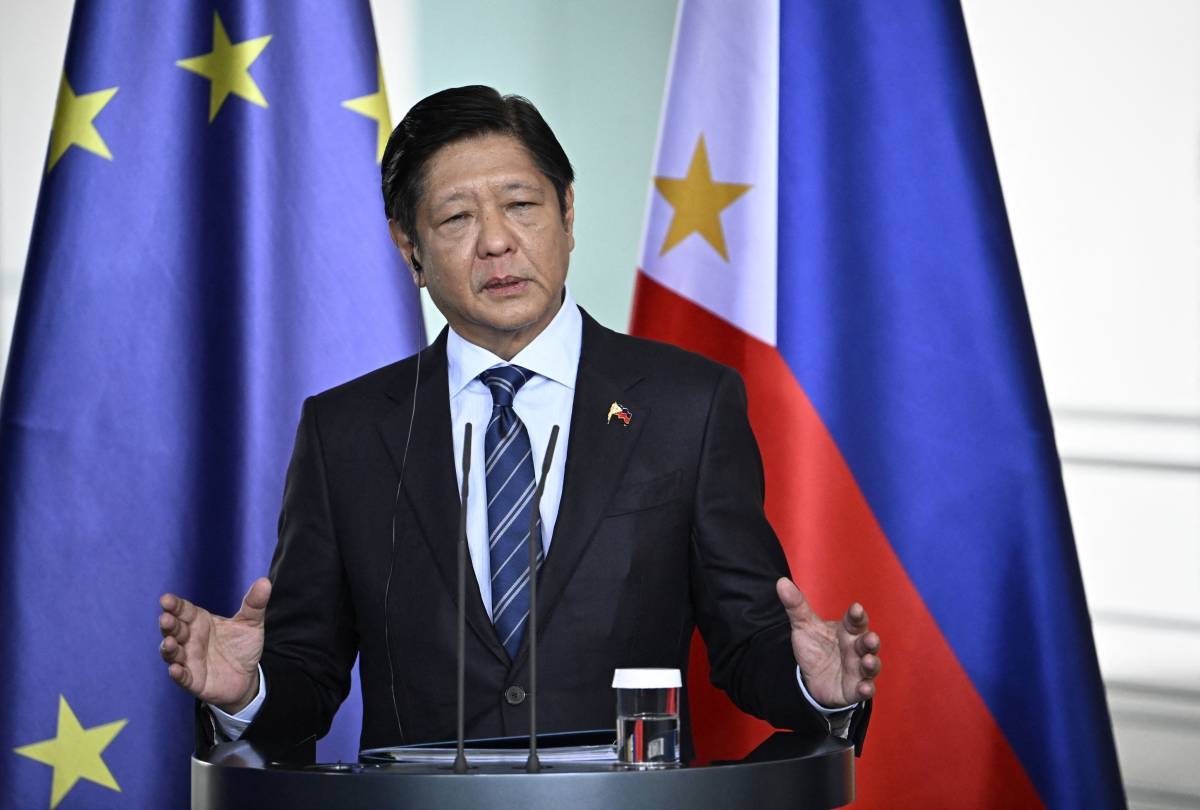Berlin: President Ferdinand Marcos Jr. Expects Trilateral Cooperation Accord with US and Japan
President Ferdinand Marcos Jr. announced on Wednesday that he anticipates the formalization of an accord for trilateral cooperation between the Philippines, the United States, and Japan. This announcement comes ahead of the upcoming visit of US Secretary of State Antony Blinken and Japan’s Foreign Minister Yoko Kamikawa to Manila next week for talks.
Speaking to the Philippine media delegation, President Marcos emphasized the intention of the meeting to further plan and strengthen the cooperation among the three countries. He stated, “We will perhaps formalize… what we are already doing, which will put a bit more structure to what we will do in terms of scheduling of joint patrols that have already taken place.”
President Marcos also acknowledged the ongoing deliberations and urged patience as the discussions progress. He mentioned that the situation is still evolving and that further developments are expected from Washington DC, Tokyo, and Manila.
High-Level Meetings to Strengthen Defense and Economic Relations
Secretary Blinken and Foreign Minister Kamikawa are scheduled to visit Manila next week for discussions focused on enhancing defense and economic relations. These meetings aim to strengthen ties between the Philippines, the United States, and Japan in preparation for an upcoming summit involving President Joe Biden, Prime Minister Fumio Kishida, and President Marcos in Washington, D.C. in April.
Foreign Affairs Secretary Enrique Manalo, who joined President Marcos during the briefing, confirmed that Secretary Blinken will arrive in Manila on March 18 for meetings with President Marcos and other senior Philippine officials. However, the confirmation from the Japanese side is still pending.
These high-level meetings are taking place against the backdrop of recent tensions between Chinese and Philippine vessels in the disputed South China Sea. The actions of China have drawn condemnation from the Philippines, the United States, and Japan.
President Marcos’ Diplomatic Engagements in Central Europe
During his visit to the Czech Republic, the second leg of his trip to Central Europe, President Marcos reiterated the Philippines’ commitment to engage with all its neighbors and stakeholders through diplomacy and dialogue, despite China’s continued aggression and harassment in the South China Sea.
President Marcos held a meeting with Czech Republic President Petr Pavel in Prague, where they discussed various regional and international issues of mutual concern, including the South China Sea, Taiwan, Ukraine, and the Middle East. President Marcos expressed gratitude to President Pavel for the Czech Republic’s support as a like-minded partner in upholding peace, stability, and the rules-based international order.
In a joint press conference with President Pavel, President Marcos briefed him on the situation in the West Philippine Sea and the South China Sea. He emphasized that the Philippine position on the South China Sea remains consistent, clear, and firmly anchored in the 1982 United Nations Convention on the Law of the Sea (UNCLOS). President Marcos reiterated the Philippines’ commitment to engage all neighbors and stakeholders through diplomacy and dialogue, despite the persistent incidents of aggression and harassment in the South China Sea.
Maintaining a Rules-Based Order in the South China Sea
President Marcos highlighted the importance of maintaining a rules-based order in the South China Sea during his visit to Berlin. He emphasized that ensuring safe passage in the disputed area would not only benefit the region but also the entire world, considering the substantial amount of commerce that passes through it.
In light of tensions in the West Philippine Sea, the Philippines and Germany have agreed to enhance defense cooperation, specifically in the maritime and cyber domains.
Despite Chinese President Xi Jinping’s recent order for China’s armed forces to prepare for military conflicts at sea and protect maritime rights and interests, President Marcos remained unfazed. He stated, “I don’t think there is anything new there. That’s what they’ve been doing already. They have defined the rules, and we are simply following international law.”
In conclusion, President Ferdinand Marcos Jr.’s announcement regarding the expected trilateral cooperation accord with the United States and Japan demonstrates the Philippines’ commitment to strengthening diplomatic ties and addressing regional challenges. These high-level meetings and diplomatic engagements reflect the Philippines’ pursuit of peace, stability, and a rules-based international order in the face of ongoing tensions in the South China Sea.
Source: The Manila Times








